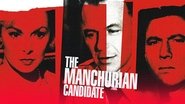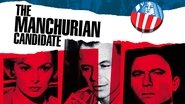ThiefHott
Too much of everything
Bea Swanson
This film is so real. It treats its characters with so much care and sensitivity.
Kaydan Christian
A terrific literary drama and character piece that shows how the process of creating art can be seen differently by those doing it and those looking at it from the outside.
ElMaruecan82
It's not the most memorable moment of "The Manchurian Candidate" but it is too delightfully and subversively goofy to be ignored: an inebriated Senator John Iselin (James Gregory), disguised as Abraham Lincoln, is dancing the limbo, George Washington would rap in a Simpsons' episode but that was three decades later, here we're in 1962 and the film's statement about politics isn't just ahead of its time but also plays like a stinging retort to all the patriotic, flag-brandishing and crowd-pleasing Capra messes that anaesthetized the masses.
To be fair, Capra also highlighted the corrupting effect of political ambition, but the Iselins would have convinced Mr. Smith to emigrate to Argentina. "The Manchurian Candidate" doesn't just satirize politics, it writes as words of Gospel that power in politics isn't a mean but an end, which means that the right and left distinction is rather sterile, the whole point is to reach power by denigrating the enemy and brainwashing the masses. Under the armor of apparent cynicism, the script, brilliantly written by George Axelrod, fabricates its own alibi. When you have a demagogue using the Red Scare to intimidate his adversaries and his mastermind wife implicated in a real communist conspiracy, say what you want but it's a fair trade.
On that political level only, the film is a triumph of writing, so ahead of its time it was deemed prophetic a day of November 1963. And that's something no one could ever foresee, not director George Frankenheimer, not the screenwriter George Axelrod, not Robert Condon who wrote the original novel and not Frank Sinatra who was rumored to have limited the diffusion of the film in respect to Kennedy's memory. It would be hard to imagine that the film inspired the assassination, but it did nourish the wildest theories about Lee Harvey Oswald being an agent of the Soviet, if not brainwashed like Raymond Shaw (Lawrence Harvey) in Manchuria, but being manipulated with extreme prejudice.
In our world where Internet became a beehive of conspiracy theorists, it's not difficult to grasp the appeal of a movie like "The Manchurian Candidate", it is not just modern by today's standards, but it's disconcertingly relevant. And yet; this a movie of many, many layers on brilliances and the political aspect isn't even the showiest one. In fact, I'm only going to quote the tag-line, "If you come in five minutes after this picture begins, you won't know what it's all about! When you've seen it all, you'll swear there's never been anything like it!". Indeed, I can think of a thousand movies like "The Manchurian Candidate", but none of them preceding it.
The statement about missing the five minutes is also true, in a subtler way. The first minutes aren't about the operation that get the whole platoon knocked out with the complicity of the interpret (Henry Silva), the point is to show that Raymond Shaw is the one who doesn't have fun and even in the next scene, warmth isn't his strongest suit as he doesn't display it either with his parents. Granted the poor man's McCarthy is only his stepfather (as he loves to mention) but she's his mother! Yet the perpetually malcontent is awarded the Medal of Honor, recommended by Major Bennett Marco (Frank Sinatra) and is described by everyone as the "warmest, bravest, most charming man they ever met".
They all repeat the same expression and all have the same dream involving a mysterious demonstration session lead by Chinese people and showing the "bravest and warmest" man casually executing two soldiers. It's not much the killing that is disturbing than the fact that it involves the two who didn't make it. If Shaw did kill, he didn't let it exude from his attitude and with good reason, as he was not only programmed to kill, but to never remember that he did. Shaw couldn't pass as a guilty man because he would know it himself. The programming is brilliant and brilliantly displayed through a mix of dream sequences and solitaire games where the Queen of Diamonds play like action-buttons.
The directing and the visual symbolism is so straight-forward that we never perceive it as surrealism, the film maintains a very straight and legitimate aspect despite a few creative digressions that could have been borrowed from Hitchcock, which encompasses an atmosphere of suspicion where every moment of awkwardness can be rightfully or wrongfully suspected. When the interpret wants to be hired as Shaw's cook, our suspect-radar is engaged but when Sinatra meets Janet Leight on the train, the dialogue is so bizarre that we suspect something codified behind. We'll never know but we sure wouldn't have remembered the scene had they exchanged banalities.
In the end, there's also this constant feeling of an impending doom all through the film, anyone can be a spy, a mind-controller, an evil force, and this is where "The Manchurian Candidate" gets its ticket to cinematic posterity. Indeed, for all the malevolent forces it inhabits, forcing a man to commit murders, one of them being pretty hardcore for the time of the film, or the level of corruption that shows absolutely no regard for the dignity of human beings, for all the bad guys who populate it with their sinister smiling face, the bigger bad of all comes from one woman. As the evil and domineering Mrs. Eleanor Shaw Iselin, not the woman behind the great man, but THE "great man" of the whole scheme, Angela Lansbury portrayed one of the most iconic villains of history, a woman who knows no bounds when it comes to satisfy her selfish impulses. She's so creepy that it's not just the way she hates that is disturbing, but the way she loves, too.
In a movie that goes so far in terms originality, we're not even shocked by Mrs. Iselin's behavior, we're just fascinated. And what I said could apply for the whole film.
cristianocrivelli
Time is the ultimate judge, isn't that what they say? Well 1962's The Manchurian Candidate is all the evidence I need. It feels ahead of it's time still and so relevant. In 2004, Jonathan Demme - one of my heroes - remade it with Meryl Streep - one my favorites - and Denzel Washington - one of my favorites - and the whole thing felt so old hat that I had to see John Frankeihemer's 1962 version again. Wow! Angela Lansbury creates one of the greatest villains in movie history. She is phenomenal and like it happens she's the kind of monster you can't have enough of. Frank Sinatra is really good here and the creepiness of Laurence Harvey is unsurpassed. So, well, yes, time has confirmed and protected the greatness of this outrageous thriller.
denis888
Probably, this period piece was quite good for its times, when it was released. Now, it seems a funny overblown, too long in its running time, too boring, too cardboard cutout, too clichéd and too baloney. Frank Sinatra? No, he is not good here, he, like almost all the other characters, overplays hugely and thus creates a comical effects, which borders both on being utterly silly and hilarious. This is a mere propaganda film, made in the heat of Joe McCarthy's frenzy and it suffers from this fetid stigma. Moreover, its possible plausible merits are washed away by protruding slow pacing and awful, almost unreal dialogues that land in the realm of pure parody. IN the 50 and 60's there are far better films than this, and the recent awfully dismal remake shows that. When the basic material is poor the end result will limp along as well.
Antonius Block
Warning, this review contains spoilers, and if you've never seen the film before, you should definitely watch it without knowing anything first, for maximum enjoyment. :) With that out of the way … fantastic performances by both Angela Lansbury and Frank Sinatra, great direction by John Frankenheimer, and an excellent plot all make this a film that is still highly enjoyable today. In a nutshell, American soldiers in the Korean War are captured and subjected to sophisticated brainwashing by Russian and Chinese communists, and one of them is programmed to carry out assassinations back in America. Frank Sinatra plays one of the soldiers who has recurring nightmares about the brainwashing, and the sequence where Frankenheimer shows them thinking they're at a meeting at a lady's club talking about flowers, which seems very odd at first, and spins the camera around to gradually show us the horrifying reality of their predicament, and just how controlled they are, is absolutely fantastic. We come to understand the assassin's trigger, the queen of diamonds when told to play solitaire, which is a wonderfully chilling concept, and I loved how the story included a false trigger at a costume party. Angela Lansbury's character evolves over the film, from over-bearing mother and wife, the brains behind her Senator husband's McCarthyism, to the mastermind behind the whole conspiracy - and how this is revealed is as great as her performance. The movie keeps us guessing, perhaps as those swept up in fear of communism guessed at what may be happening around them in their paranoia, and an example of this is Janet Leigh's offbeat dialog with Sinatra when she first meets him on a train. It immediately seems to us as code and a way of controlling him in some way, but it's also flirtatious, and we're left wondering what her role will be.Brilliant as it is, from my perspective, the movie has one major flaw. Frankenheimer was happy to show the dangers of McCarthyism and even commented on this in interviews, and yet there WAS a communist plot to overthrow the government, and there WAS unsuspected (and very dangerous) communist infiltration. So at the end of the day, what was the message – that McCarthy was right? I don't think it's right to explain this away as satire of both the right and the left, because I don't see the movie as satire, I see it as a political thriller – but it is a very good one at that.






